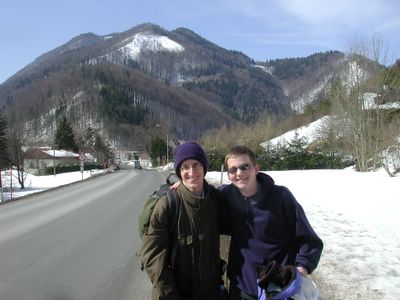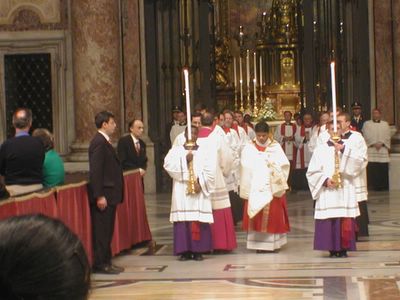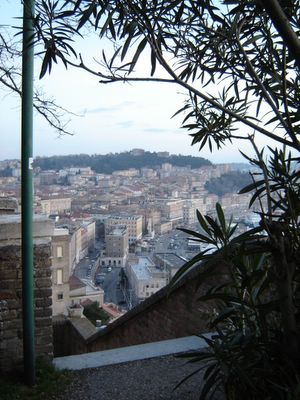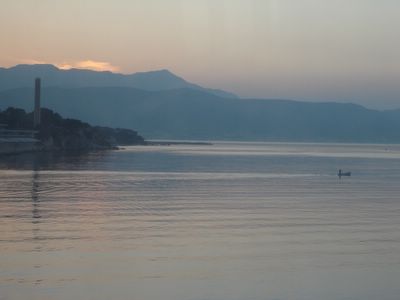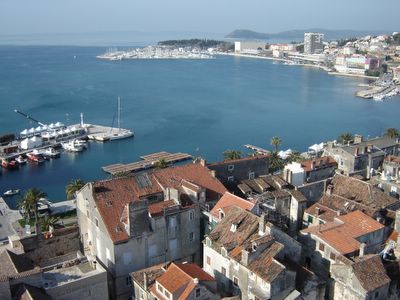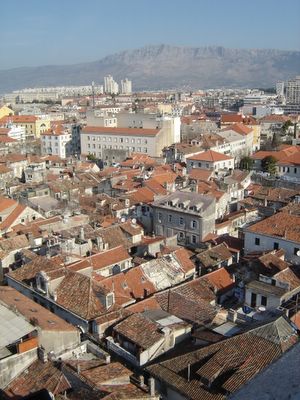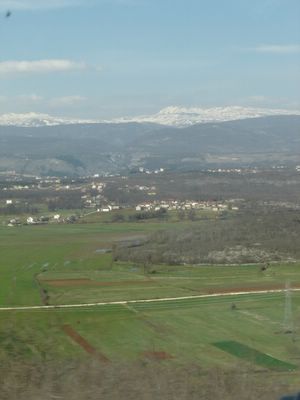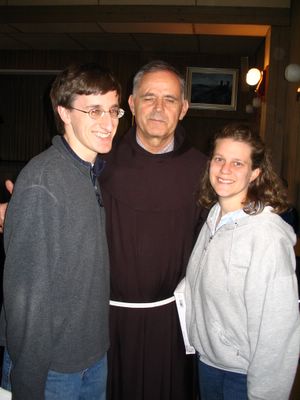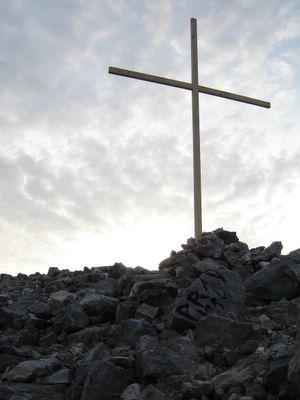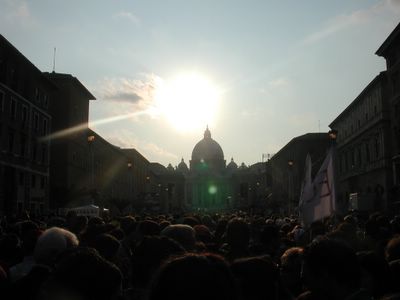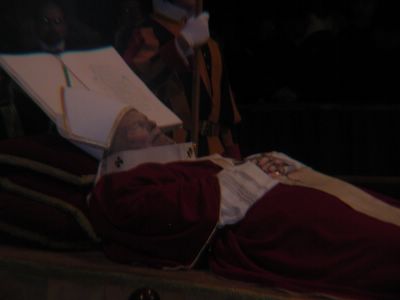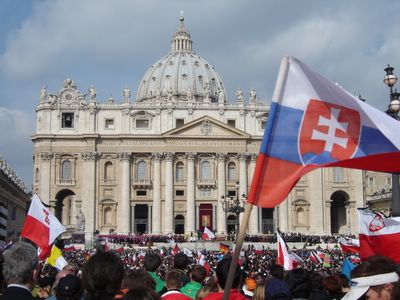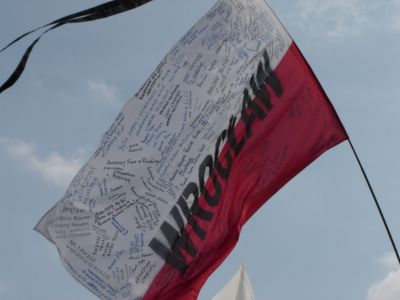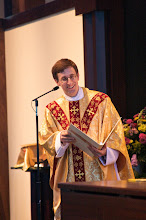With these five things constantly in mind during the five nights in Medjugorje, I could feel myself changing. As I prayed the Peace Rosary (seven Our Fathers, seven Hail Mary's, seven Glory Be's-- in sets of three), I saw the interconnectedness of prayer. The faith and the prayer life were coming alive. I felt a calling on to improve my prayer life... and something more-- I felt a calling to be unselfish. To serve.
But not just because of these five things and these three prayers. The witness of the people in Medjugorje is amazing. It is an interesting place because it is one of the few places where the faith is very truly and real-ly alive. The priest I had mentioned before-- his selfishness and service-- inspired the same type of charity within me. The couple whose house I stayed at-- Nancy and Patrick-- whose story is an entire blog itself, showed me the beauty of marriage and complete dependance on God. Everything they had to eat was given to them-- and they fed us like kings.
A quick story about how God provides...
As Patrick was driving me to the bus on my last day, he mentioned how things are always hectic around the castle with people coming in and out all the time. Sometimes, like today, he said, he forgets to pick up toothpaste before it runs out. It ran out this morning. As he dropped me off on the bus, a man came up to him with a box. I watched as Patrick opened it up and nearly fainted with surprise-- and laughter. Inside the box: 40 tubes of toothpaste.
The people of Medjugorje, with their dedication and devotion to "the apostolic teaching and fellowship, to the breaking of bread, and the prayers" (Acts 2:42), enkindled in me a joy and a real hope that this faith that we proclaim can and should be lived-- it truly does lead us to happiness and, ultimately, eternal life and love with God.
It is with this background of radical dependance on God, of renewed appreciation of His created beauty, and of heightened awareness to prayer, sacraments, and fasting that I returned to Rome.
 (And Fr. Rookie says hello to y'all).
(And Fr. Rookie says hello to y'all).


